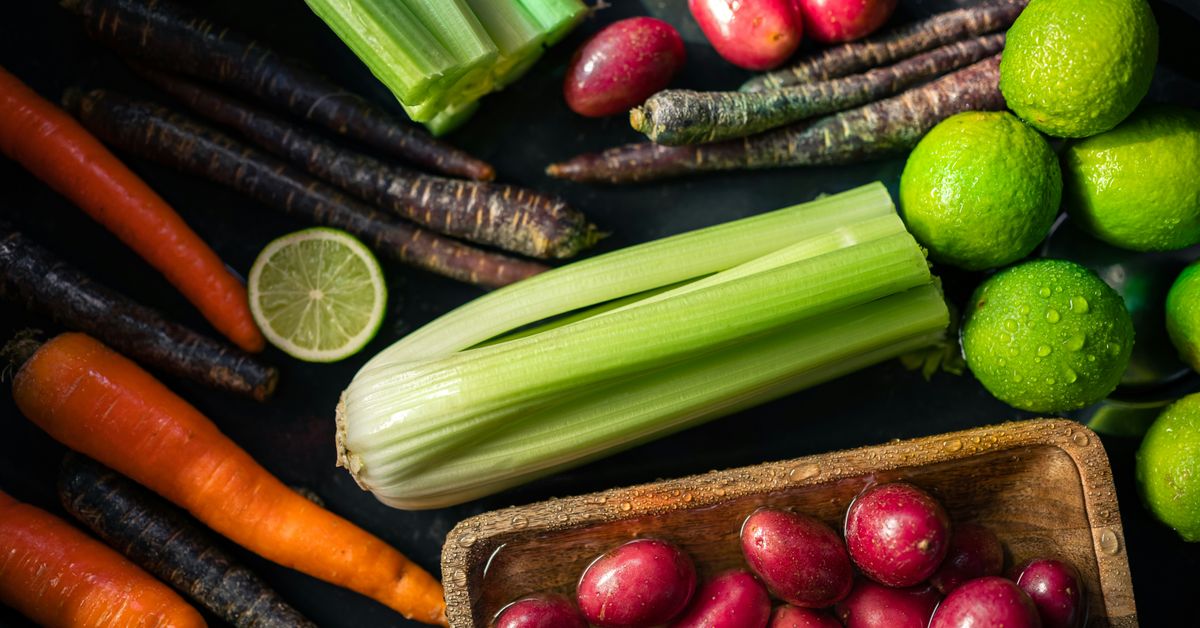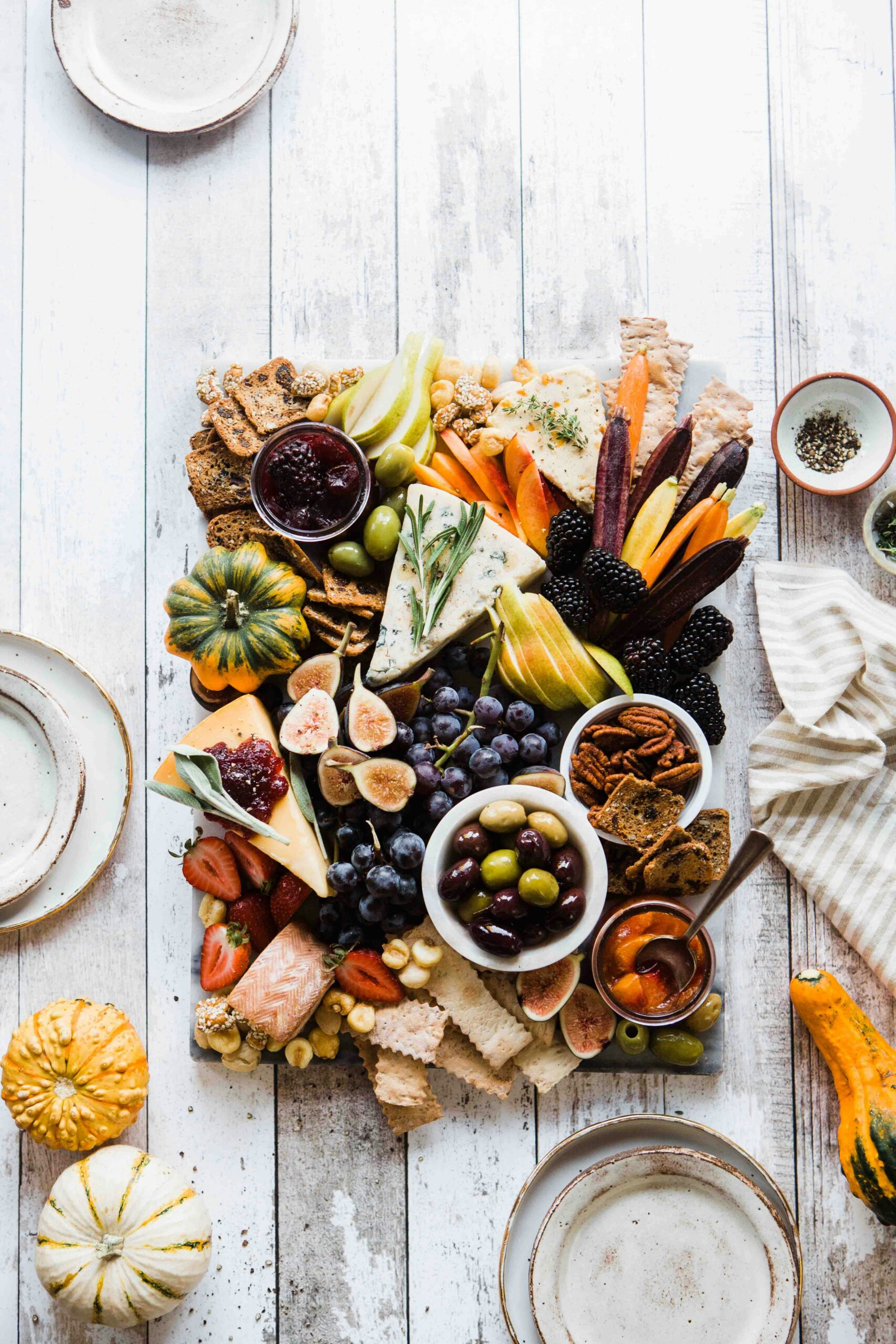Introduction: Flavor Beyond the Ordinary
Ever wandered through a garden and been enveloped by that fresh, invigorating aroma? The kind that makes you feel like you’ve just stepped into a culinary paradise? It’s no secret that herbs can transform a mundane dish into a flavor explosion, but their benefits extend far beyond just making our food taste great. I remember a time when I casually sprinkled some fresh basil onto a tomato salad, and it was as if I had unlocked a secret door to flavor town. The difference was astonishing! But the real revelation came later when I learned that fresh herbs carry a treasure trove of health benefits that often go unnoticed.
The Flavor Factor: Why Fresh Herbs Matter
Cooking without herbs is like painting without color—sure, you can do it, but why would you want to? Fresh herbs bring a vibrancy to dishes that dried herbs simply can’t match. The lively flavors of basil, cilantro, thyme, and rosemary can elevate a dish from bland to grand with just a handful of leaves. Here’s the kicker: fresh herbs are packed with essential oils, which are released during cooking, creating a delightful aroma that can literally whet your appetite.
Fresh vs. Dried: The Great Debate
It’s often debated among home cooks and professional chefs alike: should you use fresh or dried herbs? While dried herbs have their place (they can be quite handy for long, slow-cooked dishes), fresh herbs generally offer more vibrant flavors and aromas. Consider this: fresh herbs are usually more potent in flavor than their dried counterparts, which lose some of their essential oils in the drying process. If you’ve ever tasted a dish seasoned with fresh dill versus dried dill, you’ll know what I mean.
Unlocking Health Benefits: More Than Just Flavor
Alright, let’s get down to brass tacks. Fresh herbs are not only a flavor powerhouse, but they also boast a variety of health benefits that might surprise you. Many herbs are rich in antioxidants, vitamins, and minerals, which can contribute to overall health. Here’s a closer look at some of the most popular culinary herbs and their health perks:
Basil: The Holy Herb
Basil is often called the “holy herb” for a reason. Not only does it lend a sweet and slightly peppery flavor to dishes, but it’s also loaded with essential oils with anti-inflammatory properties. Some studies suggest that basil can help reduce stress and improve digestion. Who wouldn’t want a little less stress while enjoying their spaghetti?
Cilantro: A Love-It or Hate-It Herb
Cilantro is one of those herbs that tends to spark strong opinions—people either love it or can’t stand it (I have friends who would rather eat cardboard than cilantro). But if you’re part of the cilantro fan club, rejoice! This zesty herb is full of antioxidants and has been linked to improved heart health. Plus, it’s a great source of vitamins A, C, and K.
Thyme: A Timeless Classic
Thyme is a classic herb that adds depth to a variety of dishes. Beyond its culinary uses, thyme has antimicrobial properties and has been known to help with respiratory issues. The next time you brew a pot of chicken soup, consider tossing in some fresh thyme—it might just help chase away that cold!
Rosemary: The Memory Enhancer
Not only does rosemary make your roast chicken sing, but it’s also been shown to have cognitive benefits. Some studies indicate that rosemary may improve memory and concentration. So, if you’re feeling a bit forgetful, maybe it’s time to sprinkle some rosemary on your next meal (just don’t overdo it; a little goes a long way!).
Cooking with Fresh Herbs: Tips and Tricks
Now, you might be wondering how to incorporate these little green wonders into your cooking. Worry not! Cooking with fresh herbs is easier than you think. Here are some tips to help you get started:
1. Use at the Right Time
Fresh herbs are best added towards the end of cooking to preserve their flavor and aroma. Toss in some basil or parsley just before serving, and you’ll be amazed at how it transforms your dish.
2. Don’t Be Shy
When using fresh herbs, don’t skimp on quantity. Most recipes can handle a generous handful, and the more, the merrier! Feel free to experiment with combinations to find what works best for you.
3. Experiment with Infused Oils
If you want to take the flavor to another level, consider making infused oils. Simply warm some olive oil and add fresh herbs like rosemary or thyme. Let it sit for a few days, and you’ll have a delicious oil to drizzle over salads or use in marinades.
4. Grow Your Own
Nothing beats the satisfaction of plucking fresh herbs straight from your garden or windowsill. Growing your own herbs is surprisingly easy and can be done in small pots. Plus, it gives you a sense of accomplishment that you simply can’t get from store-bought herbs.
Fresh Herbs in Global Cuisines
One of the most delightful things about fresh herbs is their versatility across different cuisines. From the fragrant spices of Thai cooking to the aromatic herbs of Italian dishes, fresh herbs are a common thread that ties diverse culinary traditions together.
Italian Cuisine: A Love Affair with Herbs
Italian cooking is perhaps one of the best examples of how fresh herbs can transform a dish. Think of classic pesto—made with fresh basil, garlic, pine nuts, and parmesan. It’s a vibrant explosion of flavor that’s hard to resist. And let’s not forget about the role of parsley and oregano in Italian dishes, adding brightness and depth to everything from marinara sauce to pizza.
Thai Cuisine: A Symphony of Flavors
In Thai cuisine, fresh herbs like cilantro and Thai basil are essential to creating that signature flavor profile. A bowl of Tom Yum soup, garnished with fresh herbs, is not just a feast for the palate but also for the eyes. The freshness of the herbs balances the heat of the chilies, creating a harmonious dish that’s as good for your soul as it is for your taste buds.
Middle Eastern Cuisine: Aromatic Delights
Middle Eastern cooking is another treasure trove of herb usage. Fresh mint, parsley, and dill are often used in salads, dips, and main dishes. Think tabbouleh salad, which is practically a celebration of fresh herbs, bursting with flavor and color. The use of herbs in these cuisines highlights their ability to create complex flavors without relying heavily on salt or fat.
Health Benefits of Cooking with Fresh Herbs: A Deeper Dive
We’ve touched on some health benefits, but let’s dig a little deeper into why cooking with fresh herbs can be a game-changer for your well-being. Beyond their flavor enhancements, fresh herbs can contribute to better health in various ways:
1. Antioxidant Properties
Many fresh herbs are loaded with antioxidants, which help combat oxidative stress in the body. For example, oregano has one of the highest antioxidant levels among herbs. Incorporating herbs into your meals can provide a natural boost to your nutritional intake.
2. Anti-Inflammatory Effects
Herbs like ginger, turmeric, and basil have anti-inflammatory properties that can help reduce chronic inflammation, a known contributor to various diseases. Adding these herbs to your diet could potentially support your body’s natural defenses.
3. Digestive Support
Many herbs, such as peppermint and dill, have been traditionally used to aid digestion. Incorporating these herbs into your meals can help soothe an upset stomach and promote healthy digestion. A light mint tea after a heavy meal? Yes, please!
4. Nutrient Density
Fresh herbs are surprisingly nutrient-dense. They contain essential vitamins and minerals, such as vitamin K, which is crucial for bone health. A sprinkle of fresh herbs can significantly enhance the nutritional profile of your meal without adding many calories.
Conclusion: A Flavorful Path to Health
As we’ve explored, cooking with fresh herbs offers a myriad of benefits that go beyond mere flavor enhancement. From their impressive health properties to their role in global cuisines, fresh herbs are a secret weapon in the culinary world. So, the next time you’re in the kitchen, don’t shy away from reaching for that bunch of fresh parsley or those fragrant sprigs of thyme. Embrace the magic of fresh herbs, and you’ll find yourself not only cooking better but also nourishing your body in delightful ways.
In the end, it’s all about making small changes that lead to big benefits—both in flavor and health. So, go ahead, add a little green to your plate, and unlock the unseen benefits of cooking with fresh herbs. Your taste buds (and your body) will thank you!




